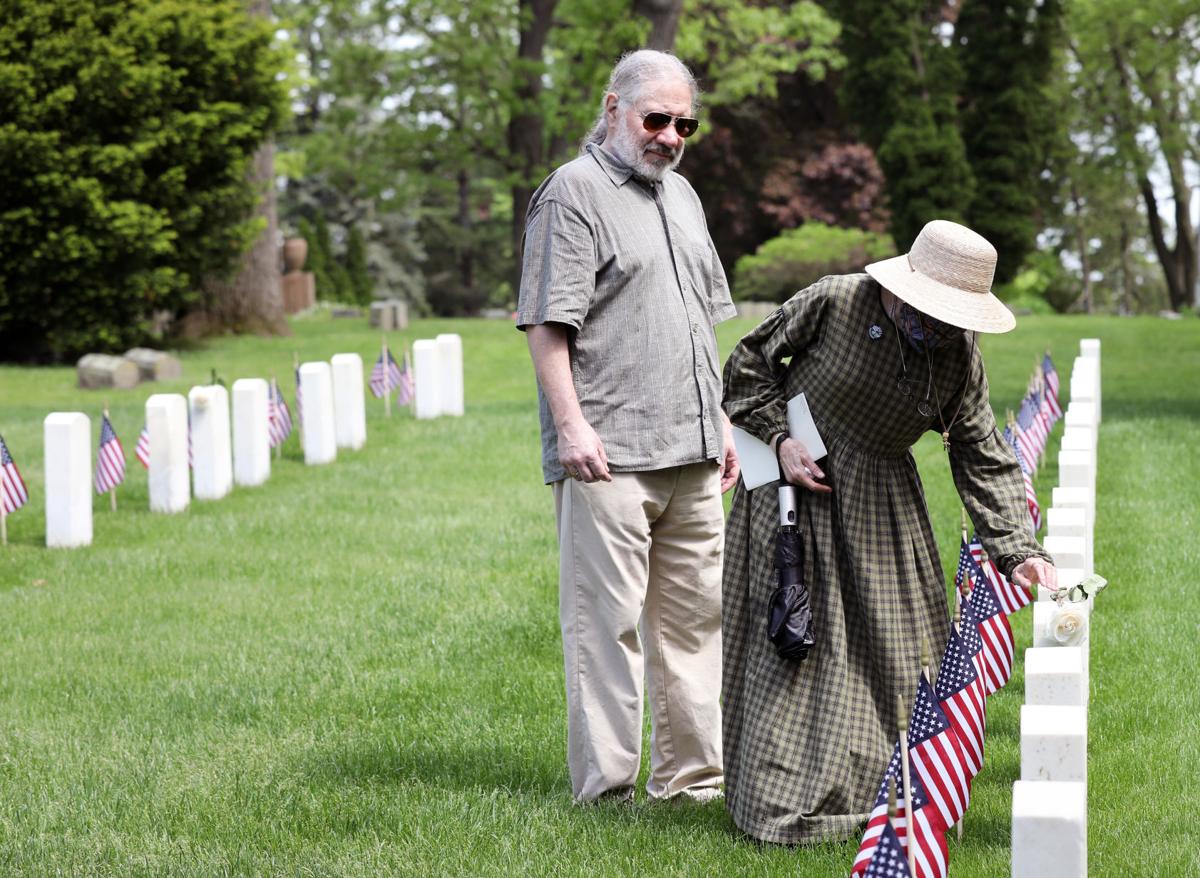The sad fact is that if the world’s inclination to settle disputes by going to war — whether it be in Iraq or in Israel and Palestine or any of the other dozens of places that teem with hate — results in the use of a nuclear weapon, we won’t have enough people to decorate all the graves.
BY:

AMBER ARNOLD, STATE JOURNAL
Today’s the day we pause to remember the tens of thousands of men and women who paid the ultimate price in service to their country.
When I was a kid this day was known as “Decoration Day.” I remember my grandparents taking us kids to the old cemetery in New Glarus to place flowers and flags, decorations if you please, on the graves of their own departed family members. Two of them had served in the Civil War.
Other folks placed memorials on the gravestones of relatives who had served in World War I, and still others paid their respects to those who gave their lives in the most recent world conflict at the time, World War II.
Today thousands of Americans will also be remembering loved ones killed in Vietnam, then Iraq and Afghanistan and countless other “skirmishes” where our leaders chose to place our young people in harm’s way. Sometimes the cause was good, more often, not so good.
A couple of weeks ago Buzz Davis, a tireless advocate for peace from Stoughton who’s now retired in Arizona, sent along a column he had written that once again calls on all of us to work harder for peace than we consistently do for war.
A Vietnam veteran himself, Davis was a founder of our local Vietnam Veterans for Peace and is still active in the national organization Vets for Peace that spreads the message that we need to find ways to solve our conflicts other than killing each other and filling cemeteries with gravestones to decorate on what we now call Memorial Day.
“Humans have been alive for 200,000 to 300,000 years,” he points out. “Nearly every major discovery has been used to ‘improve’ our ability to kill others.
“From learning how to sharpen sticks, to metal instruments, to explosive power, boats, airplanes, guns, germs and now nuclear reactions — inquisitive men and women ‘discover’ these and, mostly boys, use them to kill others,” he adds.
Since the end of World War II, we’ve all been lucky that nuclear weapons haven’t been used in the seemingly endless conflicts that plague humankind.
“Regretfully, being rational does not work,” he writes. “Wise women and men have rationally explained, researched, and estimated what will happen to the world in nuclear war. They’ve talked and lobbied for decades. But the boys with nuclear toys continue their march toward oblivion.”
Davis is one of many who worry the world’s luck may run out one day unless we and the rest of the world work together to abolish nuclear weapons. He notes that 50 nations have signed on to the United Nations Treaty on the Prohibition of Nuclear Weapons, but none of the nine countries that posses them, including the United States, are among them. In fact, those nine have fought the passage of the treaty and continue to fight it even as it has gone into effect.
The sad fact is that if the world’s inclination to settle disputes by going to war — whether it be in Iraq or in Israel and Palestine or any of the other dozens of places that teem with hate — results in the use of a nuclear weapon, we won’t have enough people to decorate all the graves.
Dave Zweifel is editor emeritus of The Capital Times. [email protected], 608-252-6410 and on Twitter @DaveZweifel.
